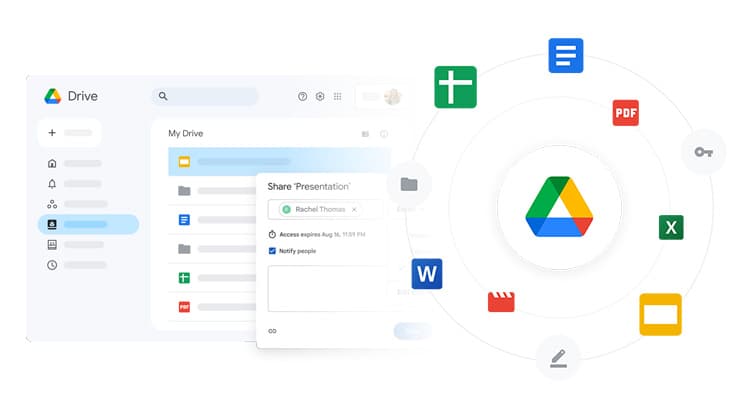Preparing for life after school: things you need to do to get ready
Key takeaways
- Get a Tax File Number (TFN) and set up a superannuation fund to start working.
- Open a bank account and create a MyGov account to access services like Medicare and Centrelink.
- Update your resume, practice interviews, and know your workplace rights.

Practical tasks are essential as you prepare for life after school and enter adulthood. Here are some key things you should do to get ready.
Set up a new email address
You’ll need to set up a personal email address, as your Department of Education email will become inactive once you leave school.
A new email is essential for registering with services like Medicare and myGov.
If you haven't done so already, consider using providers such as Gmail, Outlook, or Yahoo, and simply follow their registration instructions.
Get a Tax File Number
To start work, you'll need a tax file number (TFN). To apply, visit the Australian Taxation Office (ATO) website. If you’re under 16, you might need a parent or guardian to help with your application.
Tips
- Apply early: Apply for your TFN as soon as possible to avoid delays when you start working.
- Keep it safe: Store your TFN in a safe place and never share it unnecessarily with others.
Learn about tax and superannuation (super)
Before you start working, it's important to understand how tax and super work. Check out this beginner's guide: Tax and Super: A Beginner’s Guide | headspace.
Tips
- Educate yourself: Take the time to read up on tax and super to avoid any surprises.
- Ask questions: If you're unsure about anything, ask a teacher, parent, or free financial advisor for help.
Set up a super fund
You'll need to set up a super fund when you start working. Super is a way of saving for your retirement, and when you start earning, your employer will pay money into your super account as part of your pay.
Managing your super fund early can make a big difference to your super balance in the long run. To learn more, visit What is Super on the ATO website.
Tips
- Compare super funds: Look at different super funds to find one that offers good benefits and low fees.
- Keep track: Keep track of your super contributions and statements.
- Provide your details: When you start working, make sure to give your super fund details to your employer. Otherwise, they may use their preferred super provider.
Set up a bank account
You’ll need a bank account for wages, government payments, and everyday transactions. If you’re under 18, many banks offer fee-free youth accounts. To set up a bank account, visit your preferred bank's website or local branch.
Tips
- Consider savings feature: Look for an account that has fee-free options, interest earnings or online and mobile banking to help you manage your money.
- Compare banks: Look at different banks to find an account that best suits your needs.
Set up a myGov account
myGov is a secure online platform for accessing services like the ATO, Centrelink, and Medicare. You can create an account at my.gov.au.
Tips
- Link accounts: Once you’ve created your myGov account, link your ATO and Medicare accounts.
Get a Medicare card
If you’re 15 or older, you can apply for your own Medicare card, which gives you access to health services. To get a Medicare card, you need to enrol in Medicare. You can do this once you set up your MyGov account or complete a Medicare enrolment form.
Tips
- The Medicare Enrolment Form will ask you to provide Bank Account Details to get refunds from the government. Talk to your parents about the best bank account to add to the enrolment form (their bank account, or yours).
Get your Driver’s Licence (if you haven’t already)
A licence provides independence and can make job opportunities more accessible. To get your driver’s licence, you’ll need to complete the necessary steps for a learner's permit and provisional licence in your state or territory.
Several programs and organisations can help with the cost of getting a driver's license—look online for “Driver Licensing Access Programs” in your state.
Tips
- Some high schools and government programs offer free white card training. Research this online or talk to your school careers adviser about options for free white card training and registration.
Understand voting responsibilities
Once you turn 18, you’re required to vote in Australian elections. You can enrol when you’re 16 or 17. To enrol, visit the Australian Electoral Commission (AEC) website.
Get a job
You might want to get a job when you finish school or have a part-time job while you're l studying. YouthNav provides:
- Information about job opportunities
- Getting a driver's license
- Enrolling to vote
- Managing money
- Moving out of home
Tips
- Update your resume: Make sure your resume is up-to-date with your latest achievements and experiences.
- Practice interview skills: Practice common questions and answers for job interviews.
- Know your rights: Check the Fair Work Ombudsman website for information about workplace rights, like minimum wages, breaks and super.
Licensing, training, and registration
Some jobs require specific licenses, training, or registration.
This can include white cards for construction, Responsible Service of Alcohol or Gambling certificates in hospitality, and Working with Children or Working With Vulnerable People Checks (called a blue card in Queensland), or checks for working with people with disability (called a yellow card in Queensland).
These requirements vary by state, so make sure to check what's needed for your chosen career.
Tips
- Research requirements: Job advertisements usually state what licenses or certifications are required to apply for the job, but if in doubt, ask the employer.
- Enrol in courses: Sign up for any necessary training or certification courses as soon as possible. Sometimes places fill fast!
Additional resources
- Set up a photo ID: The requirements for this differ by state. You can search “photo ID [state]” to find information for your state.
- Get a Healthcare Card: This may also differ by state. Search “Healthcare card [state]”.
- Money education: Learn how to manage your finances effectively. If you’re 18 or older, you may be able to join the Saver Plus program. It can help you build money skills and develop life-long savings habits. You can also receive up to $500 for education related costs.
- Living Out of Home Youth Allowance: Financial support for students and apprentices living away from home
Preparing for life after school involves many steps, but with the right resources and support, you can navigate this transition smoothly. If you have any questions, talk to a teacher, career advisor or your Smith Family Partnership Coordinator.
End of article



